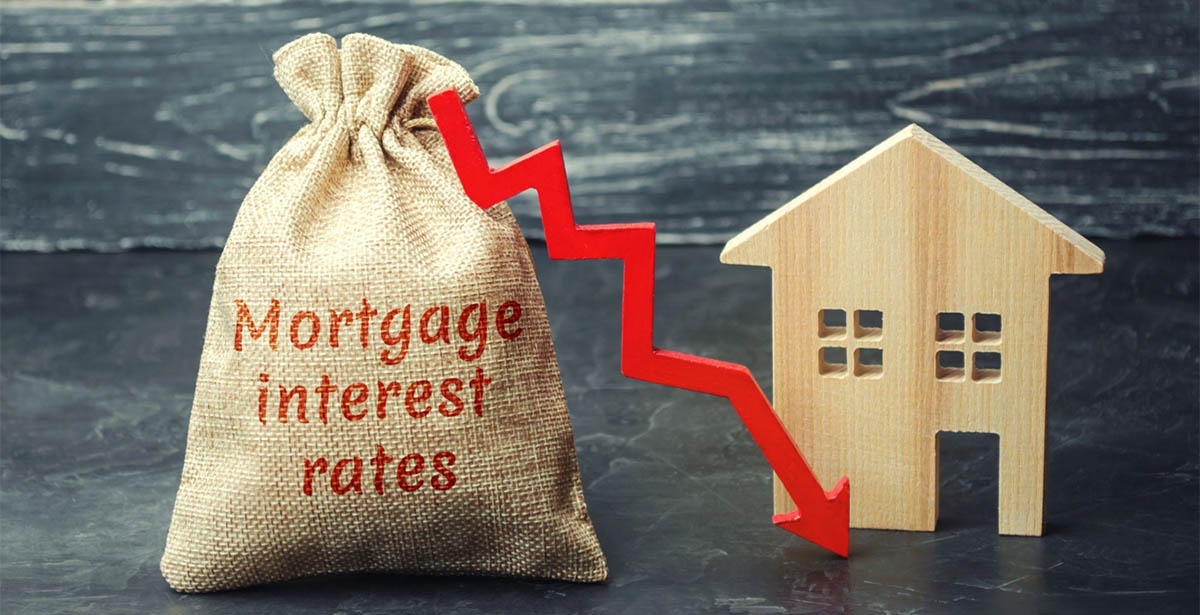
When it is better to get variable mortgage rates in Canada
In general, it’s better to get a variable-rate mortgage in Canada when you expect interest rates to drop. This is because the size of your mortgage payments depends on the interest rate at which your mortgage is set. Unlike a fixed-rate mortgage, fluctuating interest rates will change your monthly mortgage payment.
A decrease in interest rates will drop your monthly payments, while an increase will cause them to grow. The following article discusses this topic further and provides recommendations on choosing between these different types of mortgages.
Variable-rate mortgages explained
A variable-rate mortgage can change the monthly payments depending on the current interest rate. This is different from a fixed-rate mortgage, where the monthly payments stay the same for the entire term of the mortgage.
The interest rates on variable-rate mortgages are usually tied to the prime rate, which is the interest rate that banks offer to their most creditworthy customers. When the prime rate changes, so does your mortgage’s interest rate. The prime rate is affected by the Bank of Canada overnight rate. A change in the overnight rate will change the prime rate set by banks, and the size of your mortgage payment.
There are pros and cons to getting a variable-rate mortgage. On the one hand, you may benefit if interest rates drop because your monthly payments will decrease as well. Conversely, if interest rates rise, your payments will go up as well. Due to the interest rate risk, variable-rate mortgages tend to have a lower initial interest rate than fixed-rate alternatives.
Factors that cause the overnight rate to decrease
As previously mentioned, variable-rate mortgage payments decrease when the overnight rate decreases. This is why it’s best to prioritize variable over fixed-rate in an economic environment where you expect interest rates to drop. In particular, factors that typically cause the prime rate to decrease include, but are not limited to:
Economic recession
During the Covid-19 pandemic, the Bank of Canada slashed the overnight rate by 1.5%. The purpose of this significant reduction was to stimulate the economy. A reduction in the overnight rate makes it easier for businesses to borrow money and invest in growing the economy. It also makes it cheaper for homebuyers to buy a house. As a result, interest rate cuts tend to happen during slow economic periods.
Prolonged unemployment
The Bank of Canada may lower the overnight rate to combat unemployment issues. A lower interest rate allows businesses to borrow money with a lower interest rate. The theory is that the cheap debt will enable these companies to grow quickly and create more jobs. Additionally, variable-rate mortgage holders will benefit from the low rates.
Factors that cause the overnight rate to increase
While interest rates tend to decrease in a weaker economy, the opposite is generally valid for a strong economy. When there is a strong economy, the Bank of Canada tends to increase rates to counteract the cuts during economic distress. This is when you should avoid a variable-rate mortgage because your payments will increase with the overnight rate. Some common factors that typically lead to a rate increase include:
Rapid Inflation
Inflation rates that rise over time can harm the overall economy, reducing profit margins and forcing employers to cease hiring or even lay off staff. Inflation is measured through the consumer price index (CPI). A rising CPI indicates that things are getting more expensive, and there is inflation. The Bank of Canada can raise the overnight rate to combat the increasing inflation. A rise in the overnight rate causes an increase in your variable-mortgage rate too.
Stronger Canadian economy
Prolonged periods of low-interest rates will cause too much inflation and harm the economy. This is why the Bank of Canada uses periods of strong economic growth to increase the overnight rate. Although there are many methods to monitor economic health, the most common is GDP per capita. This indicator measures economic output in proportion to the population. A rising GDP per capita is a good sign that an economy is performing well.
Interest rate hikes tend to continue until the overnight rate reaches its “neutral” level, which is when the rate neither stimulates nor slows down the economy. In general, you can expect your variable-rate mortgage payments to increase after an economic fallout.
Increased consumer spending
Another indicator of a strong economy is consumer spending. When people buy and sell more items, the economy does better. This is because businesses make more profit which they can use to reinvest and hire new employees. The bank of Canada measures consumer spending with the household spending index. A rising reading often leads to higher interest rates because it signals that the economy is in good shape.
The bottom line
Variable-rate mortgages can be a great tool if you’re expecting interest rates to drop. However, they can lead to problems if interest rates start going up. If you think that there’s a chance the Bank of Canada will cut or raise the overnight rate, it’s best to get a fixed-rate mortgage, so your payments stay stable.








